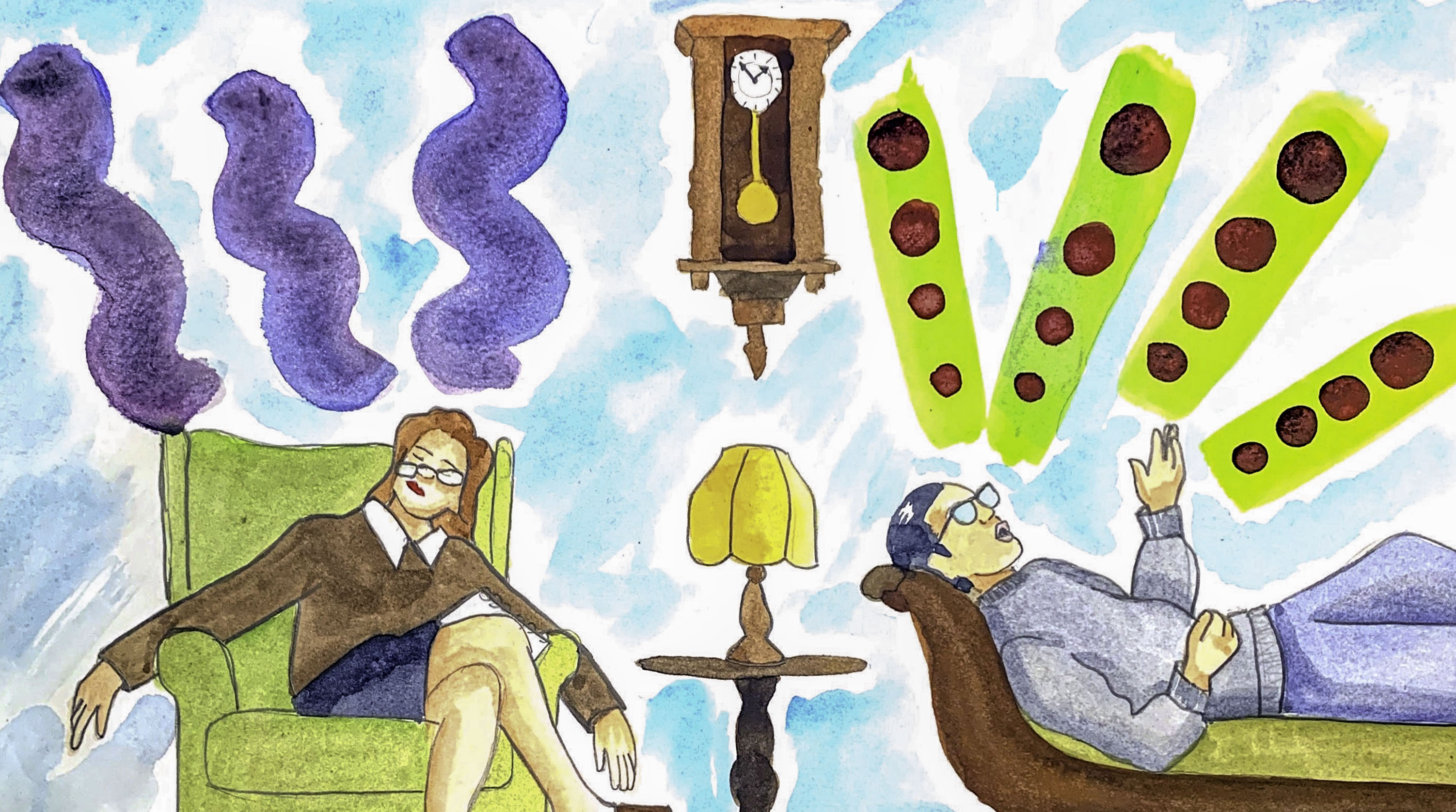
By Emma Shortall
Multimedia Editor
Therapy isn’t for everyone. At least, I decided it’s not for me.
When I was in seventh grade, my mother took me to a therapist. I didn’t want to go in the first place. My mother sat next to me trying to fill my therapist in on what was going on in my life–a suicide attempt, a sense of having no one in my life who could help. But I felt this was going nowhere. I could handle it on my own. I knew my life was not good but what could this lady do for me? She didn’t know anything about me at all.
Being forced to go to therapy makes you resist. I was stuck in this experience that I wanted no part in. I was in middle school and someone had called my parents telling them I seemed off. They took note and instantly I was signed up for therapy.
I was a swimmer. But every practice seemed to destroy me. The physical exertion allowed me to release all of my pent up worries and anxiety. It gave me time to process what was in my head. I couldn’t swim a lap without having to get out of the pool because I couldn’t breathe from the hyperventilation of my crying. It was visible that I wasn’t okay. I was suicidal, I was depressed, and I had anxiety. Everyone noticed.
I eventually became known as the “suicide girl” on the team. When I got home I would squirrel myself away in my room so my parents wouldn’t notice.
I didn’t hate therapy, but I didn’t think it was helping. I liked talking with the therapist but I felt nothing was changing in my life. And it wasn’t just the therapist. I was also meeting regularly with my school guidance counselor and a social worker. Nothing was working. I was still depressed, I was still suicidal, my anxiety wasn’t any better. So, I stopped.
I was talking to someone who didn’t know me, and they were listening, but only offering informational support, not the emotional support I needed. The therapist would suggest ways to deal with anxiety, but none of them worked. I just needed her to listen.
I came away from this many months-long experience with nothing. I learned no successful coping mechanisms.
Eventually, my life did get better. I stopped the routine of swimming, the scrutiny of tough coaches, and I made new friends. I started working. I was able to take a mental break from my main stressors. But none of this came out of therapy, it came out of me changing what I was doing.
Therapy didn’t work for me, but that doesn’t mean it doesn’t work for everyone. My sister goes and loves it, same with my friends.
I need more positives in my life, and therapy made me dwell on what was going wrong. During my sessions, I would talk about what was going on in my life, and it would force me to remember all the bad in my life, not the good. Bad always overpowers the good thoughts in my brain, and for me, that wasn’t what I needed.
I need a support system consisting of friends and family. I like having a personal connection between the person I’m telling my life stories to. There is an element of trust that I never fully built with my therapist, guidance counselor, or social worker.
There is a fine line on what I tell my friends and family. I never want to burden anyone with my problems. This isn’t their job to listen to my problems. I know when people tell me their problems, I feel a sudden urge to help them and it begins to stress me out when people dump everything onto me.
I still have what I call “relapses” of depression and suicidal thoughts. If my support system goes down then so do I. My family, including my parents and sister, are the ones who are always there.
Coping is hard when I’m still trying to figure out what the best strategies are for me. That’s not just because I don’t go to therapy. Everyone needs to figure out what their best coping strategies are, and it’s a process of figuring out which are good and bad for you. Right now, whenever I’m stressed out, hanging out with my friends really helps. Just chatting, watching movies, going shopping, anything helps.
So every time I’m feeling down all I hear is, “You should go to therapy,” and every time I tell them no. I promise I can do it myself. Therapy isn’t for me.
The point of this article is not to discourage people from therapy. Therapy does work, it works for my family and friends. This is just my story.

